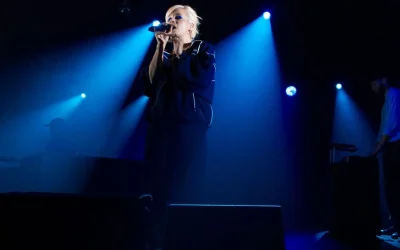The lawsuit filed over the last-minute cancellation of an Aerosmith concert in Maui can move ahead as a class action case, according to the Second Circuit Court in Hawaii.
Attorney Brandee Faria, who is representing the concertgoers who were denied a chance to see the band, told TicketNews that the court agreed with her assessment that “it would be best for all 8700-plus class members’ claims to be resolved in one lawsuit, thus it means that this case will either be resolved by trial or settlement with compensation for all 8700-plus class members.”
Aerosmith had a concert scheduled for September 26, 2007, in Maui, but canceled it allegedly to play a more lucrative show in Chicago that same month. The group claimed that following the Chicago show it could not fly its equipment to Maui in time for that show, but a few days later Aerosmith played a private show in Hawaii for employees of Toyota, for which the band was reportedly paid about $1 million. The band never rescheduled the canceled Maui show, and fans who made travel and/or hotel arrangements on the island were out of luck, which prompted the lawsuit.
Through its lawyers, Aerosmith argued against class action status, which could make any amount in damages they would have to pay if the case were ruled against them more significant. The plaintiffs are seeking well in excess of $1 million in damages.
“As for Plaintiffs’ suggestion that greed led defendants to drop Maui in lieu of Chicago, that is not an allegation of fact, it is a conclusion,” Aerosmith’s lawyers wrote. “More important, it is a conclusion that has no legal significance because it is economically irrational. Plaintiffs allege the Moving Defendants [Aerosmith] originally had three concerts scheduled – Chicago, Maui and the Toyota event in Oahu – and then, purportedly out of greed, eliminated Maui and performed two concerts. That makes no sense. If Plaintiffs’ allegations of motive are correct, the only rational thing for the Moving Defendants to have done would be to play all three concerts, not reduce their revenues by playing just two.”
Later this month the court will set a date for trial, and Faria will contact ticket buyers who notified them that they can opt out of the class action lawsuit if they so choose.
“The Defendants tried a typical defense tactic of trying to “buy out” the four named reps in order to make the case disappear,” Faria said, but did not elaborate on how much the band offered. “They all rejected the offer because it was only made to them and not the rest of the class.”



